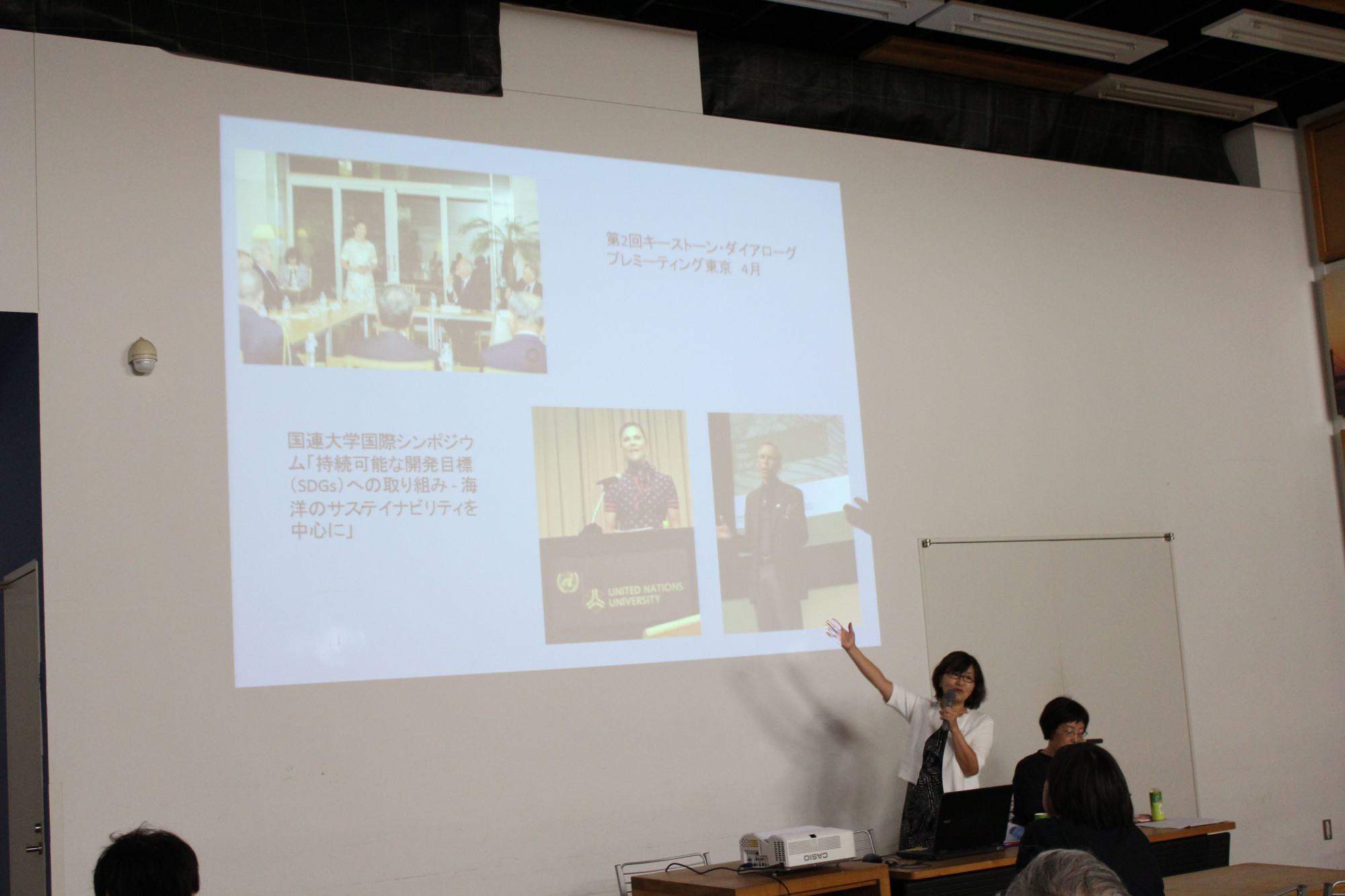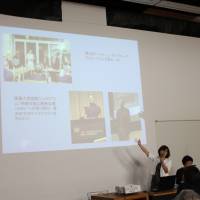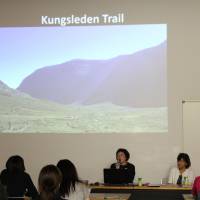At a recent seminar in Tokyo, Swedish embassy officials explained that the Scandinavian country has worked out a unique dialogue inviting major stakeholders to preserve the marine environment and, on the cultural front, offer ideal destinations for ecotourism thanks to its rich natural environment and prevailing idea of the right of public access to the wilderness.
Kazumi Appleyard, an officer from the political and economic section of the embassy in Tokyo, noted the "keystone dialogue" was initiated by the Stockholm Resilience Centre to contribute to the U.N. Sustainable Development Goals set in 2015, particularly Goal 14, which seeks to "conserve and sustainably use the oceans, seas and marine resources for sustainable development."
"The effort is unique in that it connects science to business, wild-capture fisheries to aquafarming and Asian fishery firms with those of Europe and North America," Appleyard said in the seminar titled "Sweden's Effort Toward Sustainability and its Ecotourism" at the Minato City Eco-Plaza on Sept. 6.
The initiative involves "keystone" players in the global seafood industry, as their involvement could lead to a major positive change, she explained. They can be defined as those who "dominate global production revenues and volumes within a particular sector," "control globally relevant segments of production," "connect ecosystems globally through subsidiaries" and "influence global governance processes and institutions," according to the initiative.
The first dialogue was held last November in the Maldives and attendees included representatives from eight of the world's largest fisheries and aquaculture companies, such as Maruha Nichiro Corp., Nippon Suisan Kaisha, Ltd., both from Japan, Thai Union and Marine Harvest ASA from Norway. Crown Princess Victoria of Sweden acted as a patron for the event.
Participants announced a joint statement, saying that they — as keystone actors — are "resolved to set up a new global initiative 'Seafood Business for Ocean Stewardship'" and pledged their commitment to 10 action plans, which include efforts to improve transparency and traceability in their operations, engage in concerted efforts to help reduce illegal, unreported and unregulated (IUU) fishing and encourage global efforts to reduce plastic pollution.
Appleyard added that the second dialogue was conducted in May in Stockholm, featuring two more companies, and participants pledged to work toward the elimination of IUU products and any form of modern slavery in their supply chains, as well as healthier management for fisheries and aquaculture industries. The third edition is scheduled to be held in Tokyo, according to Appleyard.
She also introduced a number of the country's green efforts for climate change that aim for net-zero carbon emissions by 2045.
The seminar was the eighth in a series introducing eco-friendly lifestyles promoted by various countries around the world. The Minato City Eco-Plaza and The Japan Times jointly organize the seminars in cooperation with various embassies in Tokyo.
Also speaking at the event, Hiromi Johansson from the embassy's information and promotion section said that in Sweden, of which about 97 percent is uninhabited, nature is very close to the Swedish people and interacting with it is part of their daily life.
People in Sweden, as well as all the tourists in the country, can enjoy "allemansratten," or the freedom to roam, as such a right is protected by law, explained Johansson, who also serves as the tourism project coordinator. The idea likely dates back to a customary law from the 13th century, she said.
On the back of this prevailing right, Sweden listed the entire country on Airbnb in May, Johansson said. "Sweden has no Eiffel Towers. No Niagara Falls or Big Bens. Not even a little Sphinx. Sweden has something else — the freedom to roam. This is our monument," the Visit Sweden official travel and tourist information website proclaimed.
"Swedish nature isn't just a piece of land with trees and lakes and cliffs — it's a home with all the necessities and amenities that any great home should have. It's a place where you can eat berries from the ground, sleep under the stars, swim in the lakes and roam freely," another website explaining the country's entry to the service noted.
But Johansson warned this freedom comes with responsibilities, adding that there are prohibited acts such as destroying nature and disturbing a landowner.
Among Sweden's many recommended activities and destinations, Johansson introduced the King's Trail (Kungsleden), an approximately 440-kilometer-long hiking route, from Abisko in the north and Hemavan.
Additionally, Johansson said the Swedes, from children to adults, enjoy playing in the water, and water activities such as sailing, canoeing and water-skiing are also very popular in the country.
"The nature in Sweden welcomes everybody and I'm sure you can feel the flow of time that would be filled with happiness," Johansson said. "We'd be happy if you were to choose Sweden as your next travel destination."





















With your current subscription plan you can comment on stories. However, before writing your first comment, please create a display name in the Profile section of your subscriber account page.